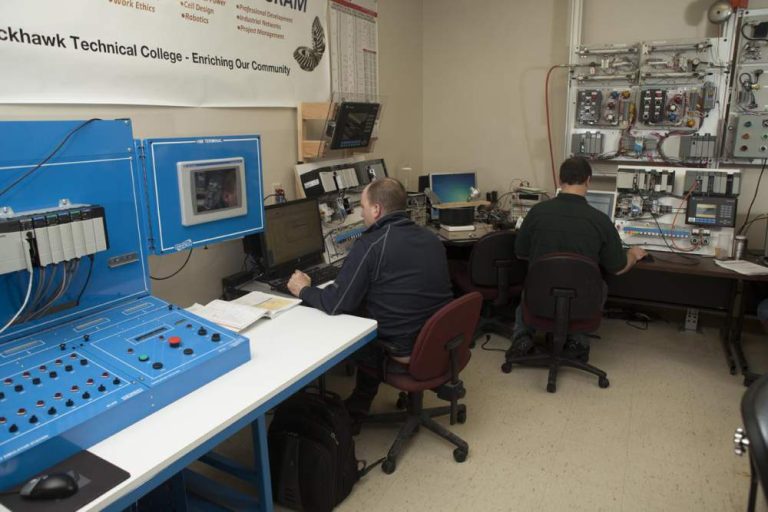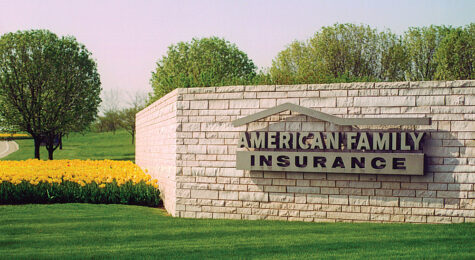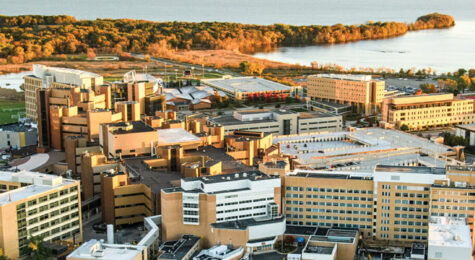Workforce Ready – Madison Higher Education Delivers Highly Skilled Workers
Discover how colleges and universities in the Madison region keep the pipeline of talent flowing to local industries.

A linchpin of the Madison Region’s competitive advantage is the availability of a deep pool of highly skilled workers. The region is home to two campuses of the University of Wisconsin system, including the flagship in Madison, as well as several high-quality private higher education institutions and a quartet of technical colleges that are the backbone of workforce development efforts to meet the needs of employers.
Growth in technology-oriented industries has also stimulated the region’s job market, creating a surplus of jobs in fields such as health care, advanced manufacturing and information technology. The region’s colleges and universities have quickly responded to growing workforce demands by adding new programs of study, building training facilities and establishing relationships with local businesses.
Rapid Response
Many of the region’s fastest growing occupations are middle- skill jobs, requiring some level of post-secondary training. Madison College, which offers two-year degree and certificate programs in high-demand, fields, such as IT, health sciences and human services, joins other community and technical colleges, including Moraine Park Technical College, Southwest Wisconsin Technical College and Blackhawk Technical College, to give current and prospective workers the needed skills to fill these positions. Blackhawk Technical College recently opened a 100,000-square- foot advanced manufacturing training center in Milton and moved its manufacturing programs there.
“In a lot of ways, it sets the bar for manufacturing training for the next 25 years,” says Gary Kohn, Blackhawk’s marketing and communications manager. “It’s a constant at the college to upgrade equipment, upgrade facilities to make sure that the students are working with what the industry is using.”
Kohn says construction of the training center was in response to the growing demand for skilled workers in the manufacturing industry. Blackhawk also upgraded its health science facilities with new equipment and labs and additional lecture space.
“As industry changes, the college evolves and changes. That’s why every one of our programs has a business community advisory group that talks to our instructors about trends in the industry,” Kohn says. “We regularly meet with them so that we can modify our curriculum to best serve the industries that are growing in our area.”
Kohn says the college also works with area economic development organizations, including the Madison Region Economic Partnership’s Business & Education Collaborative, to gain a broader understanding of workforce needs.
Technically Speaking
The Brookings Institution named Madison the top MSA in the country for science, technology, engineering and mathematics (STEM) college graduates in 2015. In the Madison Region, nearly a third of college graduates earned degrees in STEM fields. At the University of Wisconsin- Madison, a $22 million commitment from the The Grainger Foundation of Lake Forest will allow the university’s College of Engineering to build a new peer-to-peer learning and tutoring center, update classroom space and add new design innovation space that will serve as a hub for hands-on learning and product development.
The University of Wisconsin System’s regional two-year colleges – UW-Baraboo/Sauk County and UW-Rock County – also offer certificate, associate and bachelor’s degree programs in a number of STEM-related fields, including mathematical and natural sciences. Both schools offer online courses and an easy pathway into the university’s four-year system.
A Solid Career Path
The success of the Madison Region’s higher education system is well documented. A survey of 2014 graduates of Beloit College showed that 94 percent were either engaged in full-time work, service or graduate programs within six months of graduation. Beloit fosters hands-on learning experiences and encourages research, fieldwork and collaboration with businesses to help students build a network of potential employers even before graduation.
Edgewood College in Madison helps ensure career success by offering accelerated continuing education programs and online classes for working adults. In addition to offering associate degrees, technical diplomas and training for businesses, Moraine Park Technical College offers “boot camp” accelerated and intensive programs in nursing, IT and advanced manufacturing to give students real-world training through projects and internships.
“It’s all about applying what they learn to real world projects,” says Jo Ann Hall, Moraine’s dean of economic and workforce development. “These experiences allow students to interact with business partners to gain experience in that career, and if all goes well, hopefully gain a job.”



